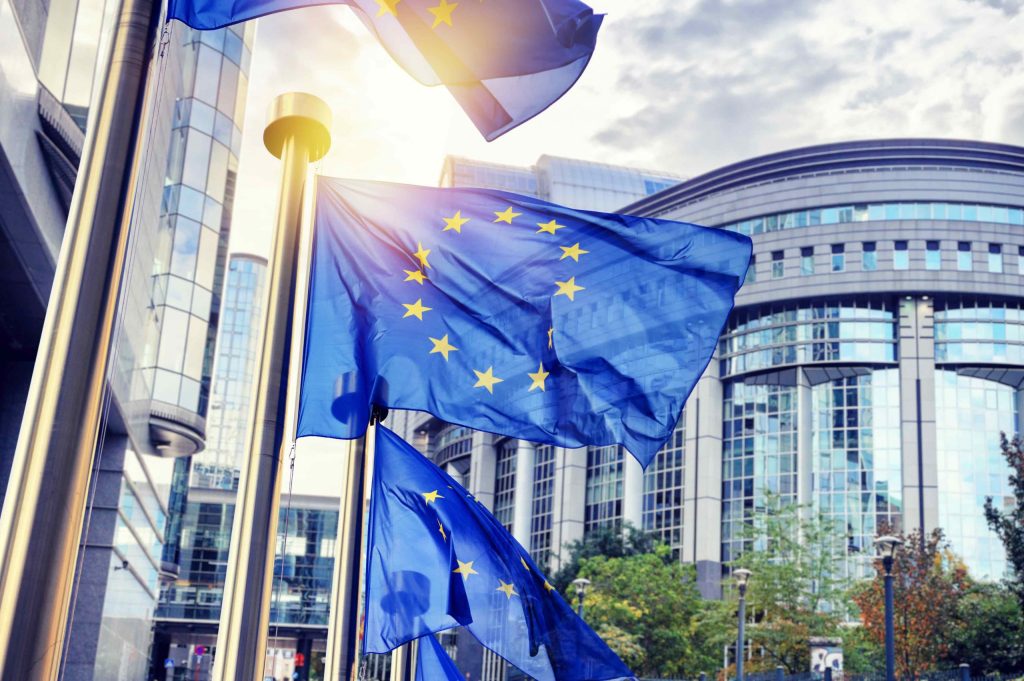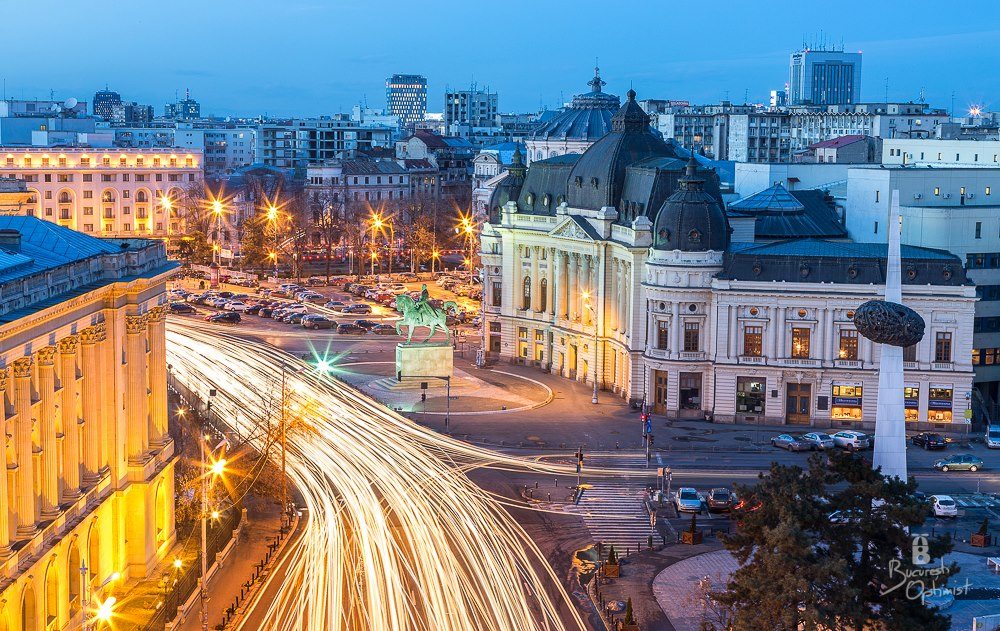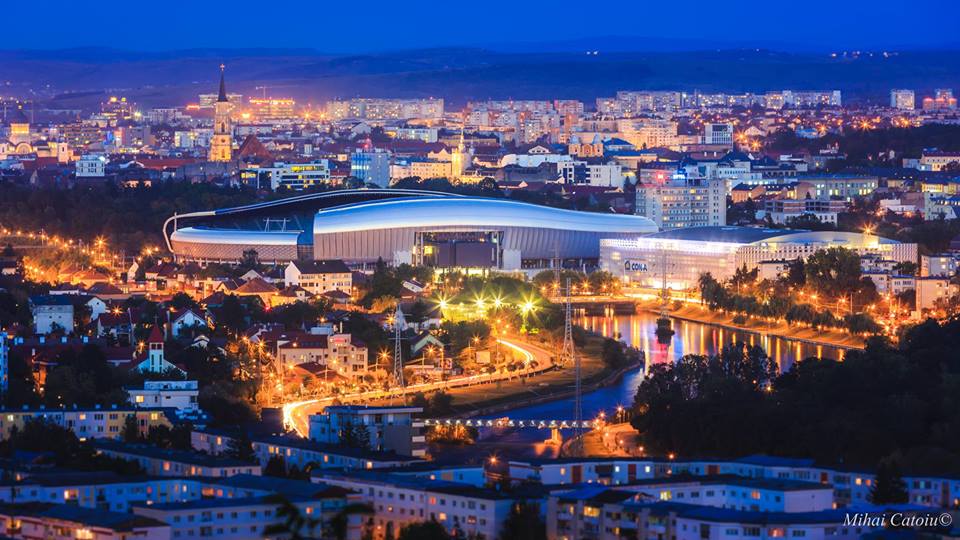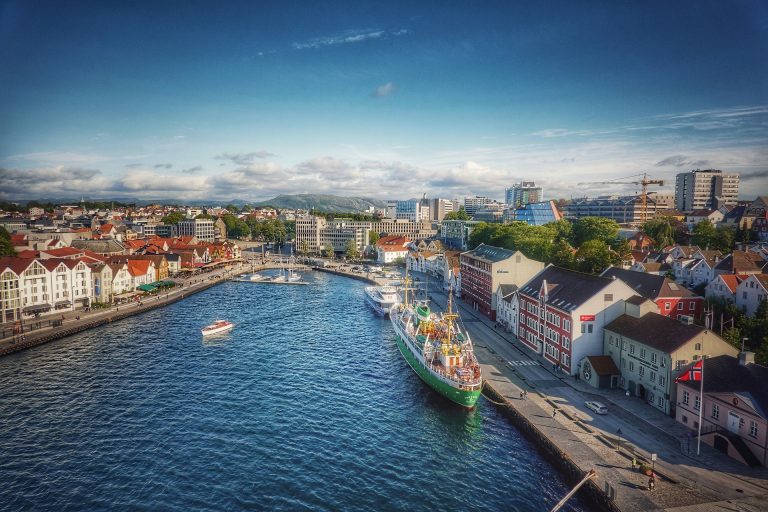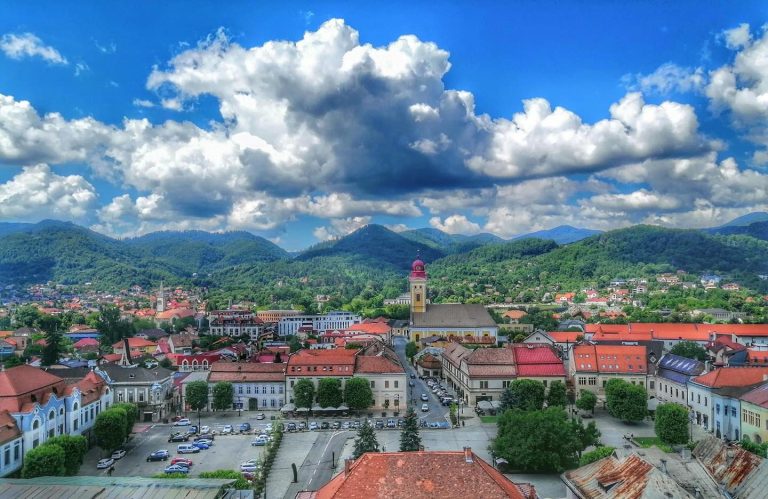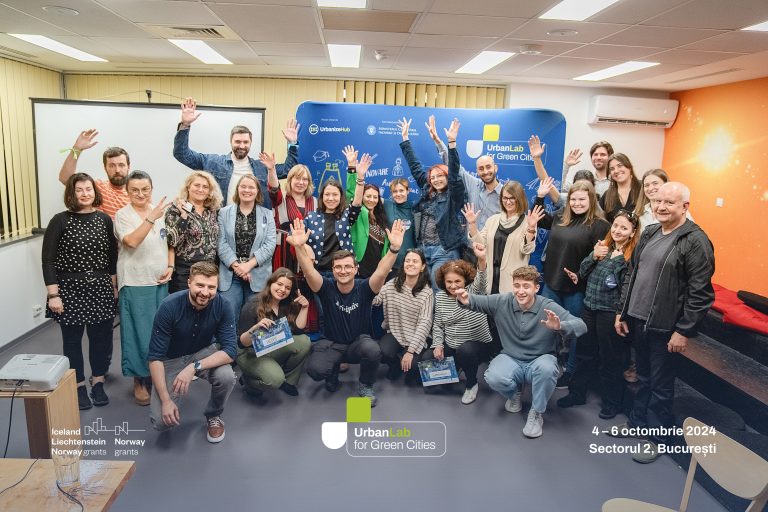For many of us, Brexit has been a shock to the system. Very few saw it coming, and most still don’t know how to interpret it. To me personally, Brexit felt like having one of your 27 close friends stand up on the table, smash all the plates and glasses they could get their feet on, piss on everybody sitting there, then rushing for the door, just to turn around before they’re out, and bellow: “we’re still friends, right?” It’s not so much that Brexit affects my life directly in any way (it doesn’t really) – it’s that, like many things today, it just doesn’t make any sense.
I can understand why a Briton would be disenchanted with the EU, but for the life of me I do not understand why some seem to hate it viscerally. We are obviously looking at the same thing from very different points of view.
So, let me tell you, if you care to read, how an average Joe from Romania sees things, and why I think the EU is humanity’s greatest achievement.
- THE CONVERGENCE MACHINE. In the Golden Growth report, the World Bank dubbed the EU the world’s premier “convergence machine”. They are very right. From Greece and Portugal, to Ireland, and now Czechia, Hungary, Poland, Slovakia, the EU has been bar-none the most successful entity in helping countries and communities make the transition to a “high-income” status. Moreover, Ireland post-EU accession is one of the most phenomenal development stories in the World. Once the GDP data for 2019 becomes available, it will likely become official that Romania has also joined the rank of high-income countries (judging from 2018 data and available growth figures for 2019). If that is not something worth celebrating, I don’t know what is!
- THE PEACE PROJECT. In The Better Angels of our Nature, Steve Pinker talks about the second half of the 20th Century as one of the longest periods of peace in World history, and the EU project has played a significant part in this achievement. It is hard for most of us to imagine, but with the exception of the post-WWII period, there has been absolutely no significant stretch of time in Europe’s history without some sort of armed conflict going on. Peace may be boring to some, but I don’t think there are many people who would want the alternative.
- THE CONFIDENCE BOOSTER. Few Westerners know the feeling of having an inferiority complex because you come from a poor, or less-developed country. Most Romanians know the feeling all-too-well. What we have learned since joining the EU though is that we’re not that bad. In recent years, Romania has undergone a transformation that really is spectacular. Now, not every Romanian has benefited from this transformation equally, but every piece of data you look at indicates that the overwhelming majority of Romanians live much better now than they did in 1989. I walk around prouder today – both because I come from the EU and because being part of the EU has shown me that a German or Swede is not born superior (although they may have an early start in life).
Now, let me tell you why the EU has been critical to strengthening the economy and strengthening communities in Romania (and I would bet this was the case in most Member Countries):
- DIRECTION and SENSE of PURPOSE. With the fall of the Communist centralized planning system, most localities in Romania were left to fend for themselves, and most spent the better part of the transition years without a clear sense of purpose and direction. With the introduction of EU funds in 2007, all of the sudden, these local communities had something worth fighting for. What few people realize is that the EU funds provide much, much more than just free funds for critical public and private investments. They give local communities (because this is where EU funds have the biggest impact) something worth fighting for. If you will travel through Romania now, you will see that although EU-funded investments represent less than a third of all investments, in recent years, they are the most visible ones.
- ORDER and PREDICTABILITY. While to many, the EU, or rather the European Commission, may seem like a clunky and bureaucratic machine, it is surprisingly svelte and efficient. EU funds, conditionalities, transposition of legislation, have literally transformed over night the Romanian public system. It may not seem like that on the outside but look only at local administrations’ performance on EU funds in the 2007-2013 Programming Period, and in the current 2014-2020 Programming Period. The difference is day-and-night. Local administrations have learned to do better strategic planning, to prioritize, to prepare and implement projects, and to bring various stakeholders around the table. And, the brilliant thing is that once people learn to do things better, they don’t want to go back to doing things the way they used to. Also, once a community has set a number of priorities for the future they will never un-learn or forget those priorities – these will be beacons guiding the development of the community.
- ALTERNATIVES to OUTMIGRATION. Over 5 million Romanians live abroad. More will likely leave, and few are likely to return. One of the main reasons for this out-migration was the lack of viable options in Romania – if life was miserable in one city, it was miserable in all. You could make a relatively decent living in Romania (several cities offer well-paying jobs and have a GDP per Capita, adjusted for purchasing power, similar to that of Western cities), but the quality of life Romanian cities offered was poor across the board. In essence, the private sector in Romania has moved and modernized much faster than the public sector. For the first time in the post-1898 period, however, there are a number of quality-of-life hubs that many Romanians see as an alternative to outmigration. There are also a number of local administrations that serve as an example for others. If 10 years ago, you would have asked a Romanian what other city they would like to move to, they would invariably pick a city from abroad. Do the same thing now, and you will be surprised to find a number of Romanian cities in their list of priorities.
Now on the role EU cities could play in strengthening the Union:
- DILUTING BOUNDARIES. While decision makers within the European Commission were trying to figure out how the EU could make the transition to a federation of states, its cities have already done it. With some central governments taking decisions that are contrary to the founding principles of the EU, several local governments have started to take a discordant note – opposing their central governments, buttressing and promoting EU principles, and working with each other across national boundaries. Moreover, the EU will become stronger if it becomes a union of metropolises rather than a union of region (which was a brilliant idea, but should have been pushed further). The county, and the region I am part of, mean nothing to me. But the metropolis I am part of is where I go to work, where I go to swim in the summer, where I take hikes on week-ends, where I have my mici and beer.
- GROWTH ENGINES. A community, a city, a country, or a federation of states, are all living organisms, and like all living organisms if they are not busy growing, they are busy dying. The EU is undergoing rapid demographic decline (in most EU countries, the fertility rate dropped below replacement level in the 1970s) and aging. The impact of this dynamic, particularly economic slow-down, can be felt everywhere. The hollowing out of much of Europe is nicely portrayed in this amazing data-platform: https://interaktiv.morgenpost.de/europakarte/#5/48.604/13.315/de – What the platform also shows however is that cities, or rather urban areas, are the points from where the EU can stage a comeback. They are now only economic growth engines, and people magnets, but also innovation hubs that could allow the EU to re-invent itself.
- GREEN MACHINES. As is becoming increasingly clear, the future will either be green, or it will be grim. Many see the current Covid-19 crisis as nature’s punch-back to humanity, and we better heed such signs. The EU has launched the Green Deal – the most ambitious program of its kind, in human history. Achieving the Green Deal goals will be impossible if local administrations are not rallied around those goals, and if they are not encouraged to play a leading role in finding solutions for a greener, healthier, and happier planet. The more local communities will be looking for such solutions, the better.
Here are some concluding remarks, or things to mull over, if you had the patience to read up to this point:
- LEARN to FALL in LOVE with the EU. The EU is like a nerdy kid in the school yard. You know the kid will change the world someday, but the kid is not someone you want to spend time with now. When the US was formed, it was a cowboy – wild and dangerous. When the EU was formed, it was a speckled nerd – mild mannered and boring. The EU needs to learn to be cool, but first we need to learn to love the EU, with all its nerdiness.
- CELEBRATE the EU. The US churns away a mind-boggling volume of movies, books, songs celebrating the US and what it stands for. The EU has not produced anything celebrating its amazingness since L’Auberge Espagnole. The European Commission spends billions on roads and bridges, but almost nothing on culture. The US went through a bloody civil war to save itself. People were willing to die for the Union because it meant something for them. How many people are willing to die for the EU? When will we learn to celebrate someone like Robert Schuman the same way Americans celebrate George Washington.
- ENCOURAGE the EXPANSION of the EU. There is strength in numbers, and size does matter. A larger EU is a stronger EU. Moreover, a larger EU means better development outcomes for more people. Yes, the EU faces a lot of problems (demographic decline and aging being the most important), but it is not itself the problem – this is one thing that the pro-Brexit crowd monumentally failed to understand.
Foto: cluju.ro, Glasul Aradului


